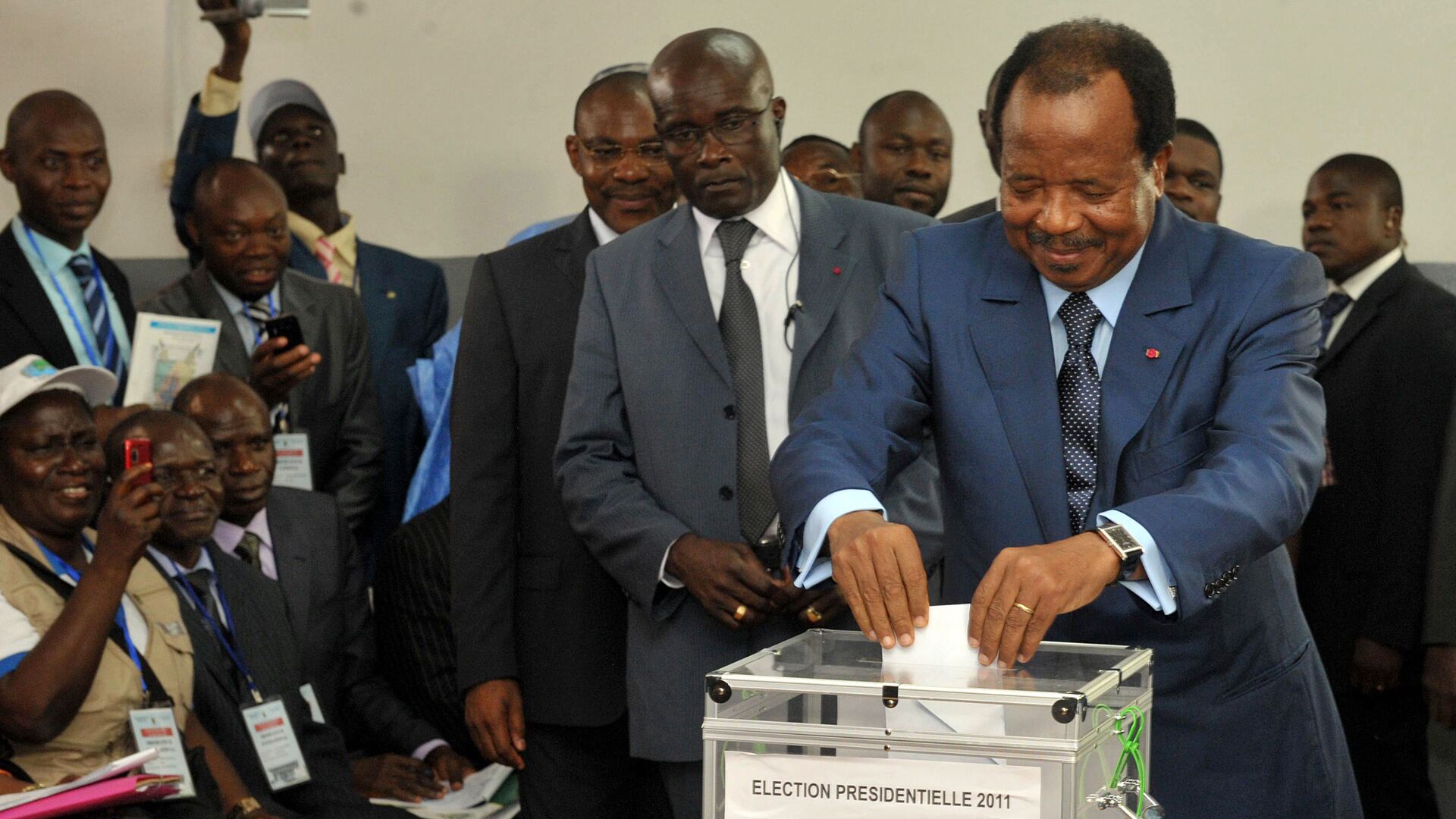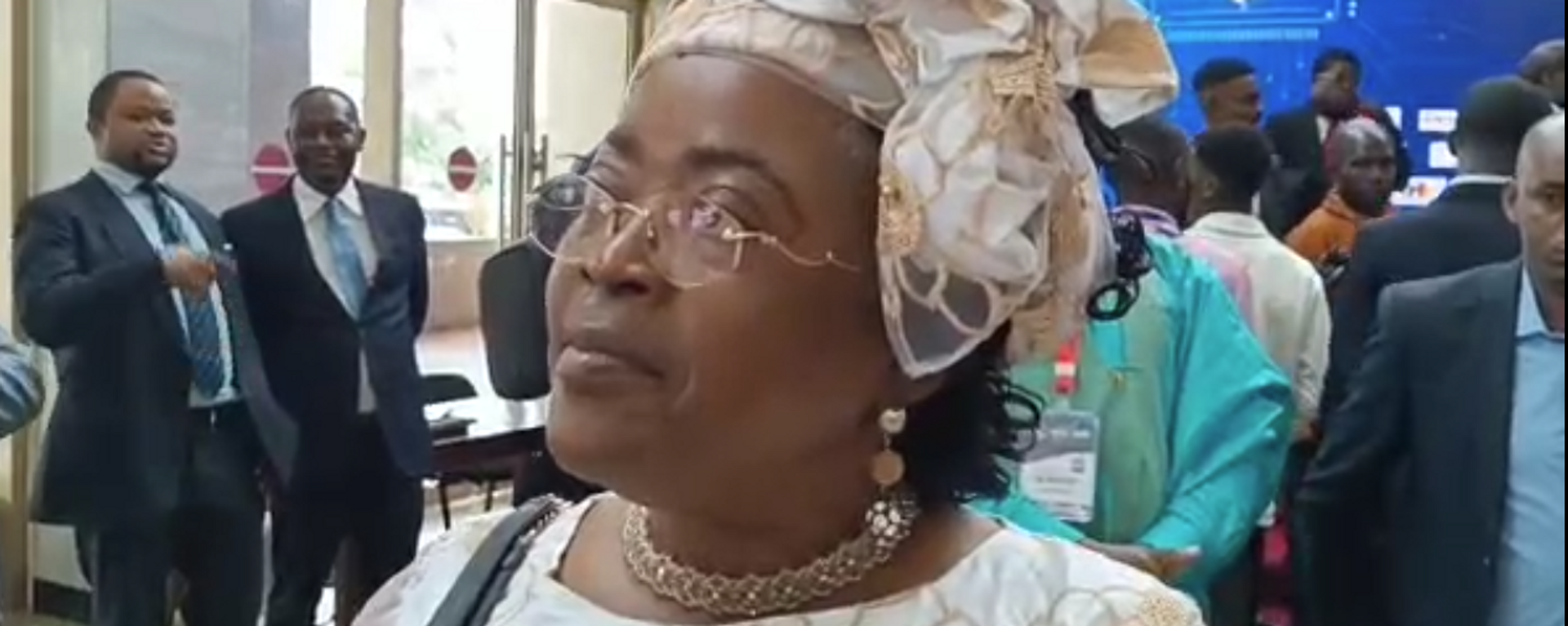https://en.sputniknews.africa/20240710/cameroon-lawmakers-approve-delay-of-legislative-local-elections-1067442443.html
Cameroon Lawmakers Approve Delay of Legislative, Local Elections
Cameroon Lawmakers Approve Delay of Legislative, Local Elections
Sputnik Africa
The electoral code in Cameroon requires presidential candidates to be nominated by a party with representation in parliament or local councils or by a... 10.07.2024, Sputnik Africa
2024-07-10T14:23+0200
2024-07-10T14:23+0200
2024-07-10T15:19+0200
sub-saharan africa
cameroon
politics
presidential election
elections
central africa
https://cdn1.img.sputniknews.africa/img/104295/47/1042954711_0:0:3176:1787_1920x0_80_0_0_2103272f804fb3d7a9e80c90926814cc.jpg
The Cameroonian National Assembly has approved a bill to postpone parliamentary and local elections until 2026, a decision that has drawn criticism from opposition parties.The bill, which extends the mandate of lawmakers by a year to March 2026, was passed by a majority vote in favor of the ruling Cameroon People's Democratic Movement (CPDM). The move means that legislative and municipal elections will now take place after the presidential election scheduled for October 2025.The government justified the delay by citing the need to "lighten the electoral calendar," which originally included four elections scheduled for next year.Some opposition parties strongly condemned the decision, calling it undemocratic. Opposition members argue that holding legislative and municipal elections next year would have provided them with momentum ahead of the presidential vote.According to the Central African country's electoral code, presidential candidates must be nominated by a party that is represented in parliament or local councils, or by a recommendation from a significant number of dignitaries.In the same vein, Maurice Kamto, Biya's main challenger in 2018, currently lacks such representation due to his party's boycott of the last elections.
https://en.sputniknews.africa/20240305/intl-cooperation-needed-to-deal-with-disruptive-technologies-of-media-cameroonian-minister-says-1065393420.html
cameroon
central africa
Sputnik Africa
feedback@sputniknews.com
+74956456601
MIA „Rossiya Segodnya“
2024
Muhammad Nooh Osman
https://cdn1.img.sputniknews.africa/img/07e7/04/0a/1058467512_0:0:1280:1280_100x100_80_0_0_ec723833bcbfcaed2e21952965ad99e4.jpg
Muhammad Nooh Osman
https://cdn1.img.sputniknews.africa/img/07e7/04/0a/1058467512_0:0:1280:1280_100x100_80_0_0_ec723833bcbfcaed2e21952965ad99e4.jpg
News
en_EN
Sputnik Africa
feedback@sputniknews.com
+74956456601
MIA „Rossiya Segodnya“
Sputnik Africa
feedback@sputniknews.com
+74956456601
MIA „Rossiya Segodnya“
Muhammad Nooh Osman
https://cdn1.img.sputniknews.africa/img/07e7/04/0a/1058467512_0:0:1280:1280_100x100_80_0_0_ec723833bcbfcaed2e21952965ad99e4.jpg
cameroon, politics, presidential election, elections, central africa
cameroon, politics, presidential election, elections, central africa
Cameroon Lawmakers Approve Delay of Legislative, Local Elections
14:23 10.07.2024 (Updated: 15:19 10.07.2024) Muhammad Nooh Osman
Writer/Editor
The electoral code in Cameroon requires presidential candidates to be nominated by a party with representation in parliament or local councils or by a recommendation from a significant number of dignitaries.
The
Cameroonian National Assembly has approved a bill to postpone parliamentary and local elections until 2026, a decision that has drawn criticism from opposition parties.
The bill, which extends the mandate of lawmakers by a year to March 2026, was passed by a majority vote in favor of the ruling Cameroon People's Democratic Movement (CPDM). The move means that legislative and municipal elections will now take place after the presidential election scheduled for October 2025.
The government justified the delay by citing the need to "lighten the electoral calendar," which originally included four elections scheduled for next year.
Some opposition parties strongly condemned the decision, calling it undemocratic. Opposition members argue that holding legislative and municipal elections next year would have provided them with momentum ahead of the presidential vote.
According to the Central African country's electoral code, presidential candidates must be nominated by a party that is represented in parliament or local councils, or by a recommendation from a significant number of dignitaries.
In the same vein, Maurice Kamto, Biya's main challenger in 2018, currently lacks such representation due to his party's boycott of the last elections.



